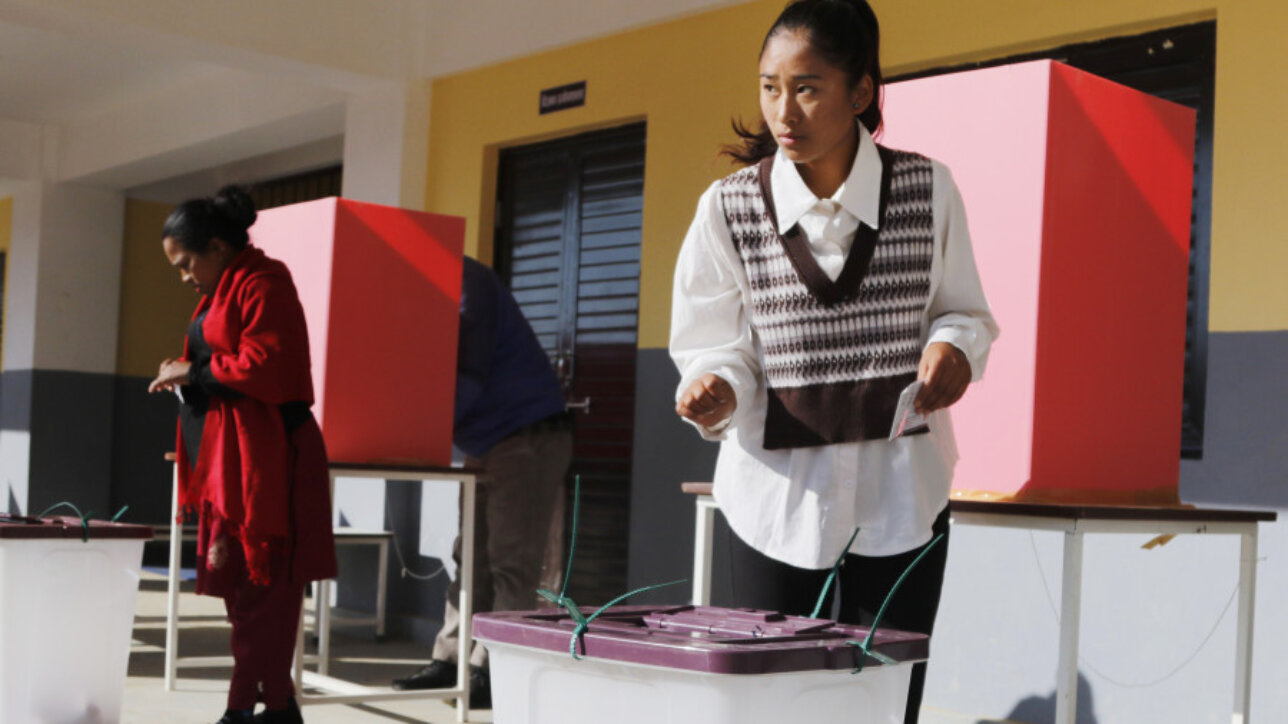While the tightening of monetary policy did help, the focus has to shift to fiscal reforms.
When Nepal Rastra Bank released its seven-month data on the Nepali economy, it was surprising why it did not organise a press conference to share the figures. The central bank’s report shows that Nepal has been recovering from the pandemic shocks. It has a Rs133.21 billion balance of payments surplus in the first seven months compared to a Rs247.03 billion deficit during the same period last year. Foreign exchange reserves have increased by 13.8 percent in rupee terms and 10.2 percent in dollar terms in the first seven months. These reserves now cover 10.8 months of imports. Likewise, in line with the projections of the Nepal Economic Forum Remittance Report, remittance inflows have increased by 27.1 percent to Rs689.88 billion. In United States currency, remittance inflows increased by 16.4 percent to $5.30 billion. There was also little discussion about these results on social media or the news media. When I posted this on various platforms, the responses were mostly cynical and scoffed how these data had either been cooked or did not reflect the real situation.
The International Monetary Fund (IMF) just finished its Article IV mission to review Nepal’s indicators. It has provided a set of observations acknowledging strong recovery and laying down some key areas where Nepal needs to focus. They acknowledged that the “much-needed monetary policy tightening last year helped stabilise the external position and contributed to lowering inflation.” In Nepal where people are used to making decisions or interpreting situations without using data, they don’t know what to do when you throw statistics at them.
People-national problems
In Nepal, when you say the voice of the private sector—which the government, politicians and international organisations listen to—it is the same set of leaders of different political private sector organisations who, like political leaders, have to address the demands of their constituencies. Many of these key leaders are related to the few businesses that were impacted by tightened monetary policy.
For instance, automobile sales in Nepal benefited from liberal regulations. Given Nepali buying behaviour, people who went to buy a Rs2.5 million car drove out of the showroom in a Rs4 million car as credit was easily available. More cars were imported, and people took loans to buy them. Now, people do not have money to repay their old loans, so they can’t take new loans to buy cars. Stock purchase is not based on the scientific calculation of demand, but on how much push sales one can make. Importers are saddled with old model vehicles in the stockyard, but the government cannot buy them and bail them out like in the past. With increased interest rates, the debts are piling up, and rather than finding customers, they are defaulting on the repayments. The Nepali culture of impulsive spending and taking loans without thinking of how to pay them back is a big responsible factor.
The story is no different among the other income group levels. In a review of a project, we noticed that people who got grants to expand their micro-enterprises used them instead to buy land, and then borrowed from cooperatives to build houses on the plots. Now they cannot repay their loans and do not have working capital for their businesses either. Another group in trouble came to me to relate their story. They took loans as cooperative members to go on a joint-family vacation in Thailand and were to repay them in instalments. But then the pandemic hit. The other members came to know about this, and are asking them to pay up. Multiple cases come from businesses of different scales and income levels, but they have only one storyline. One got away with these in the past, now you are caught. So now, you portray your problem as a national problem!
Carrot and stick approach
While the tightening of monetary policy did help, the focus has to shift towards fiscal reforms, as everyone is saying. Money has to reach the different levels of government fast so it can be spent. The government cannot think of knee-jerk austerity measures but must engage in a strategy as soon as a new finance minister comes in. We do not need any other study or report, there are enough action points in the zillions of past studies and reports. Just implement them! It will also be important to take international organisations into confidence and get guidance in areas the government has no experience handling.
Just because some party leader’s sycophant, niece or nephew has a degree from the US does not mean he or she can be entrusted to fix things. It is necessary to build a caucus of parliamentarians who can hire teams to help them. There is no dearth of money for such types of work. Fiscal and legislative reforms will be key again to attract investments, whether from Nepalis or foreigners.
It is important to understand the relationship between investments and reforms. A steady flow of investments can push economic activities and ensure no crisis build-up. Also, we need to understand what the economic crisis entails. As I tell my friends, if there really is a crisis, you would not be sipping whiskey at a bar but rather queuing for fuel or food.
Read the full article on The Kathmandu Post: https://kathmandupost.com/columns/2023/03/20/there-is-no-economic-crisis










